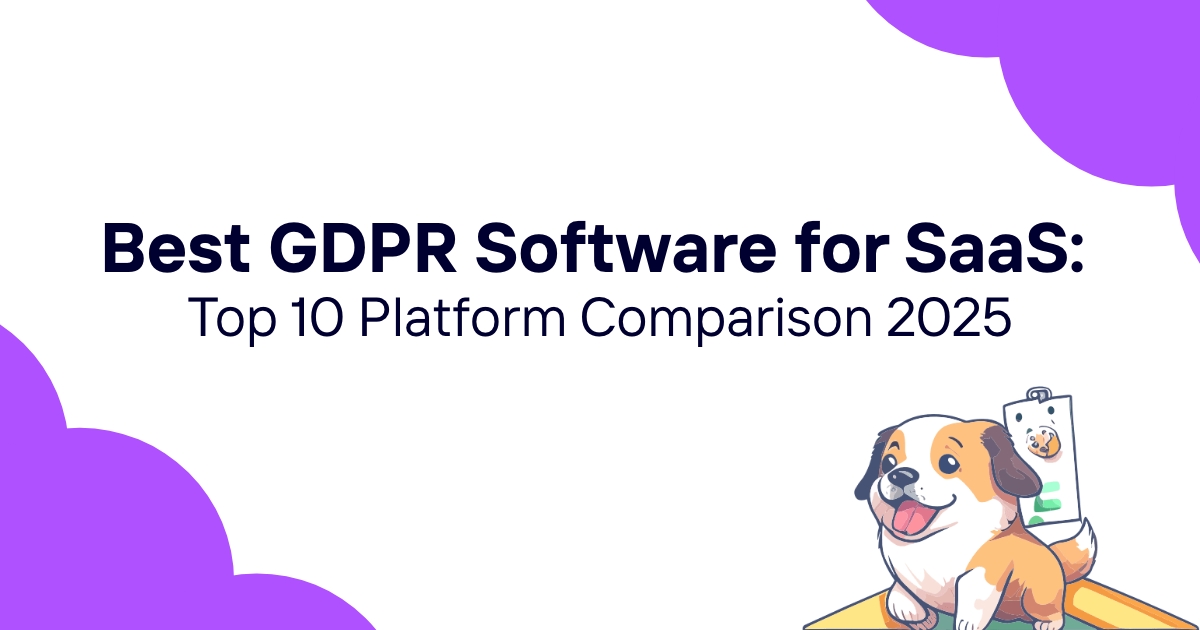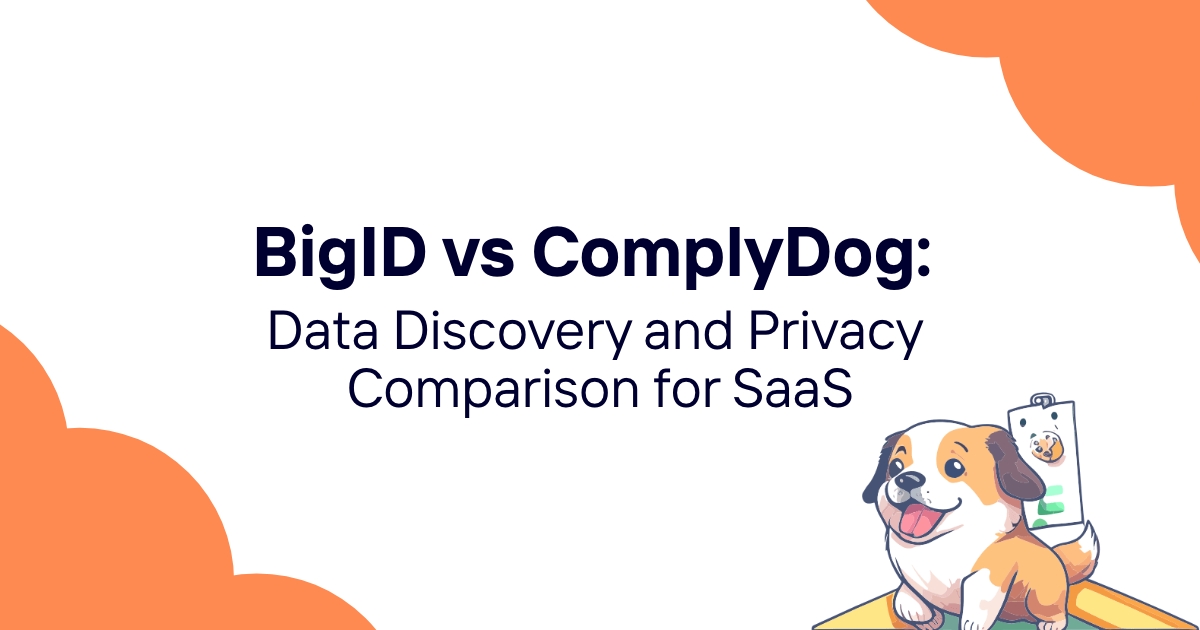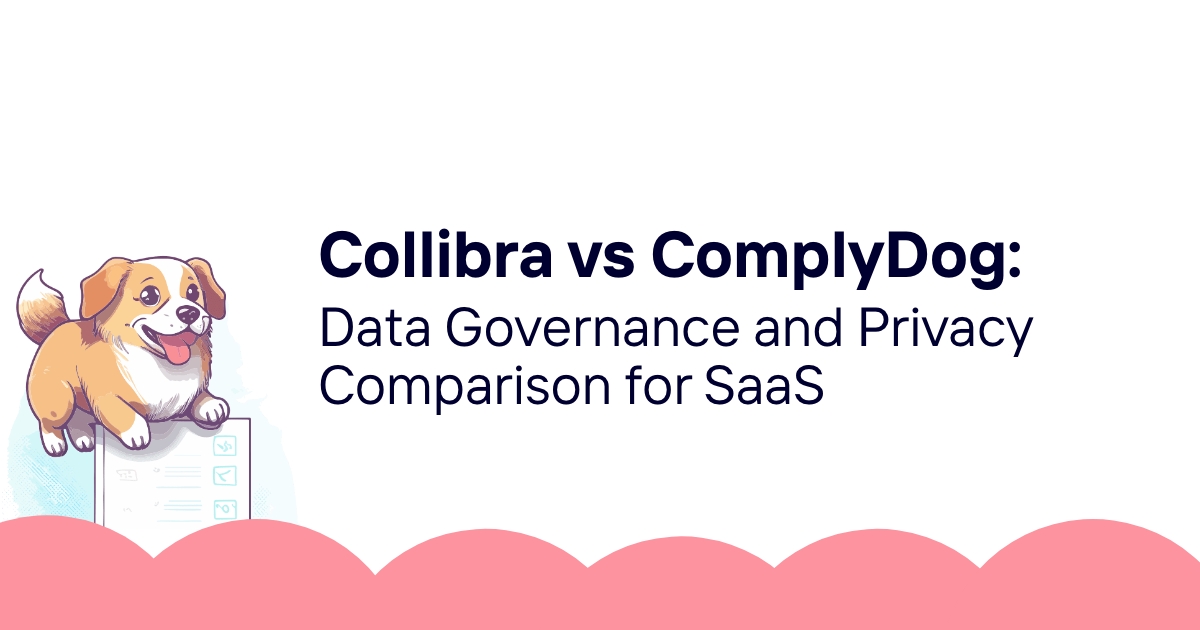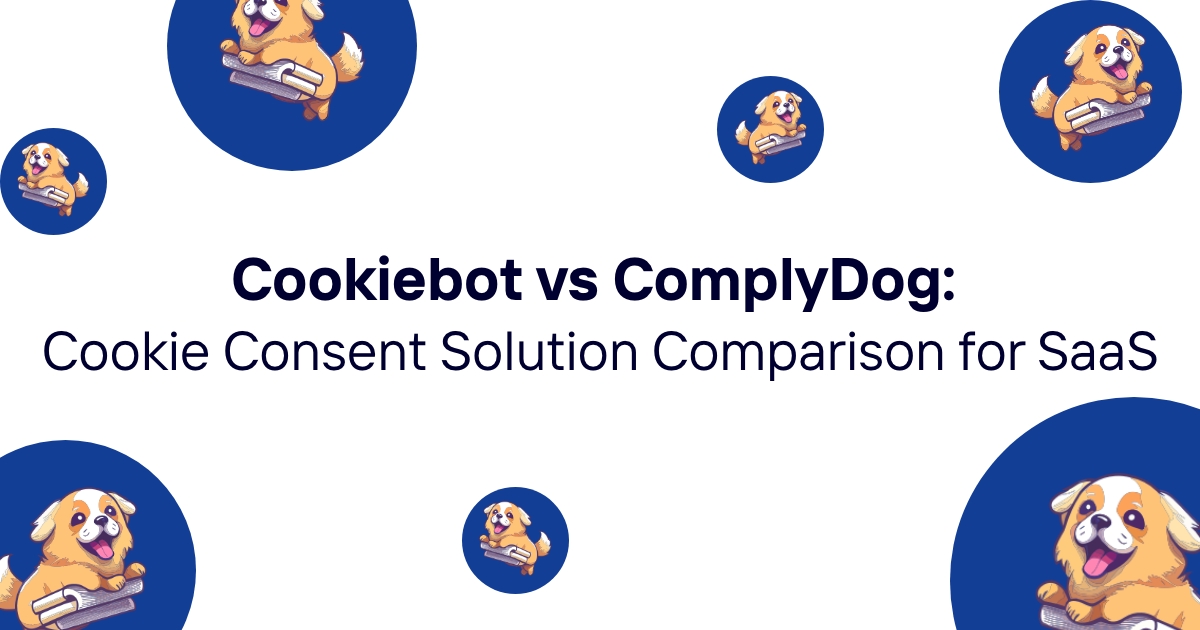Selecting the best GDPR compliance software requires comprehensive evaluation of privacy management platforms while considering SaaS-specific requirements, implementation complexity, and regulatory effectiveness throughout privacy platform assessment and vendor selection activities. Modern SaaS companies need GDPR solutions that balance comprehensive compliance functionality with operational efficiency while addressing cloud architectures and business scalability requirements.
The complexity of GDPR compliance software selection lies in evaluating diverse platform approaches, feature sets, and vendor specializations while assessing implementation requirements, ongoing costs, and long-term strategic alignment throughout privacy solution evaluation and vendor comparison activities.
SaaS companies must analyze GDPR compliance platforms based on regulatory coverage, automation capabilities, technical integration, and operational efficiency while ensuring selected solutions provide sustainable compliance management throughout regulatory adherence and business growth activities.
Effective GDPR software evaluation enables SaaS companies to optimize privacy compliance investment while building comprehensive regulatory capabilities through systematic platform assessment that considers both immediate compliance needs and future business requirements throughout vendor selection and implementation planning.
Proper GDPR platform comparison requires methodical evaluation of compliance features, technical capabilities, vendor characteristics, and cost considerations that ensures software selection enhances GDPR compliance effectiveness throughout privacy operations and organizational development.
This comprehensive comparison evaluates leading GDPR compliance software options specifically for SaaS companies, providing objective analysis to support informed platform selection and implementation decisions.
Evaluation Criteria for SaaS GDPR Compliance Software
Establishing comprehensive evaluation criteria enables SaaS companies to assess GDPR compliance software systematically while ensuring platform selection addresses specific regulatory and operational requirements throughout privacy software evaluation activities.
GDPR Compliance Coverage:
GDPR compliance evaluation includes Article 30 record keeping, data subject rights processing, breach notification automation, and privacy impact assessment support while addressing comprehensive regulatory requirements throughout GDPR compliance and regulatory activities.
Compliance coverage assessment evaluates automated compliance tracking, regulatory reporting capabilities, and documentation support while ensuring comprehensive GDPR adherence throughout privacy compliance operations.
SaaS-Specific Functionality:
SaaS evaluation encompasses multi-tenant architecture support, cloud deployment compatibility, subscription model privacy, and software development integration while addressing unique SaaS requirements throughout platform assessment activities.
SaaS functionality includes API-first architecture, containerized deployment, microservices integration, and cloud-native capabilities while ensuring platform alignment with modern SaaS technical architectures.
Implementation and Integration Complexity:
Implementation assessment includes deployment timeline, technical integration requirements, customization needs, and user training while addressing practical implementation considerations throughout platform deployment evaluation.
Integration complexity evaluation encompasses system connectivity, data synchronization, workflow automation, and operational efficiency while ensuring sustainable platform adoption and utilization.
Cost Structure and Value Proposition:
Cost evaluation includes platform licensing, implementation services, ongoing maintenance, and scaling considerations while addressing total cost of ownership throughout budget planning and investment assessment activities.
Value proposition assessment encompasses compliance efficiency, risk reduction, operational automation, and competitive advantage while evaluating return on privacy compliance investment.
Vendor Stability and Support Quality:
Vendor evaluation includes market position, financial stability, product roadmap, and customer support while addressing long-term platform viability throughout vendor relationship planning activities.
For comprehensive GDPR compliance guidance, see our detailed Collibra vs ComplyDog comparison for additional platform evaluation insights.
Top 10 GDPR Compliance Software Platforms
The following platforms represent leading GDPR compliance software options for SaaS companies, evaluated based on regulatory coverage, SaaS compatibility, and implementation feasibility.
1. ComplyDog - SaaS-Specialized Privacy Platform
Platform Overview: ComplyDog provides comprehensive GDPR compliance software specifically designed for SaaS companies, offering integrated privacy management including data mapping, consent management, data subject rights processing, and regulatory reporting while focusing exclusively on software-as-a-service requirements.
Key GDPR Features:
- Automated Article 30 record maintenance
- Integrated data subject rights processing
- GDPR breach notification workflows
- Privacy impact assessment automation
- Consent management and tracking
SaaS Advantages:
- Multi-tenant architecture support
- Cloud-native deployment
- API-first integration
- Subscription model privacy compliance
- Software development lifecycle integration
Implementation Characteristics: ComplyDog emphasizes rapid deployment with SaaS-optimized implementation methodology, providing guided setup and automated compliance configuration designed for software companies.
2. OneTrust - Enterprise Privacy Platform
Platform Overview: OneTrust offers comprehensive privacy management functionality serving large enterprises with extensive regulatory requirements while providing broad privacy, risk, and ethics management capabilities.
Key Features:
- Comprehensive privacy assessment tools
- Extensive vendor management capabilities
- Multi-jurisdictional compliance support
- Enterprise-scale data mapping
- Advanced workflow automation
Considerations: OneTrust typically targets large enterprises with complex requirements and substantial budgets, potentially presenting implementation complexity for smaller SaaS companies.
3. TrustArc - Privacy Compliance Platform
Platform Overview: TrustArc provides privacy compliance and risk management functionality with emphasis on assessment, compliance tracking, and privacy program development.
Key Features:
- Privacy assessment frameworks
- Compliance monitoring capabilities
- Risk management integration
- Regulatory guidance resources
- Privacy program maturity modeling
Considerations: TrustArc offers comprehensive privacy management with varying implementation complexity depending on organizational requirements and customization needs.
4. Cookiebot - Consent Management Specialist
Platform Overview: Cookiebot specializes in cookie consent management and website compliance, providing dedicated consent banner solutions and tracking capabilities.
Key Features:
- Advanced cookie scanning
- Consent banner optimization
- GDPR consent compliance
- Multi-language support
- Consent analytics
Considerations: Cookiebot focuses specifically on consent management, requiring integration with other tools for comprehensive GDPR compliance management.
5. Osano - Privacy Operations Platform
Platform Overview: Osano provides privacy compliance functionality including consent management, privacy monitoring, and compliance automation with emphasis on operational efficiency.
Key Features:
- Consent management capabilities
- Privacy monitoring tools
- Compliance automation
- Vendor assessment functionality
- Privacy program management
Considerations: Osano has undergone platform evolution and market positioning changes, requiring evaluation of current feature sets and platform stability.
6. DataGrail - Privacy Rights Automation
Platform Overview: DataGrail specializes in privacy rights automation and data subject request processing with emphasis on workflow automation and operational efficiency.
Key Features:
- Automated data subject rights processing
- System integration capabilities
- Request workflow automation
- Data discovery functionality
- Compliance reporting
Considerations: DataGrail focuses primarily on rights management, potentially requiring additional tools for comprehensive GDPR compliance coverage.
7. Privacera - Data Security and Governance
Platform Overview: Privacera provides data security and governance capabilities with emphasis on access controls, data protection, and policy enforcement.
Key Features:
- Data discovery and classification
- Access control management
- Policy enforcement automation
- Data masking capabilities
- Security monitoring
Considerations: Privacera emphasizes data security governance, requiring evaluation of privacy compliance functionality alignment with GDPR requirements.
8. BigID - Data Intelligence Platform
Platform Overview: BigID offers advanced data discovery and classification capabilities with machine learning-powered data intelligence and governance functionality.
Key Features:
- Advanced data discovery
- Machine learning classification
- Data intelligence analytics
- Privacy risk assessment
- Comprehensive data mapping
Considerations: BigID provides sophisticated data discovery capabilities that may exceed basic GDPR compliance needs while requiring significant implementation investment.
9. Collibra - Enterprise Data Governance
Platform Overview: Collibra provides comprehensive data governance and catalog functionality designed for large enterprises with complex data management requirements.
Key Features:
- Data catalog management
- Metadata governance
- Data lineage tracking
- Business glossary management
- Collaborative data stewardship
Considerations: Collibra focuses on comprehensive data governance, potentially providing more functionality than required for SaaS GDPR compliance while requiring substantial implementation effort.
10. Microsoft Purview - Integrated Compliance Suite
Platform Overview: Microsoft Purview offers integrated compliance and data governance capabilities within Microsoft ecosystem, providing privacy management alongside broader compliance functionality.
Key Features:
- Integrated Microsoft ecosystem
- Data classification capabilities
- Compliance management tools
- Risk assessment functionality
- Policy automation features
Considerations: Microsoft Purview integrates well within Microsoft environments while potentially requiring additional functionality for comprehensive standalone GDPR compliance.
Platform Selection Framework for SaaS Companies
Selecting optimal GDPR compliance software requires systematic evaluation framework that addresses SaaS-specific requirements while ensuring sustainable compliance management and operational efficiency throughout platform selection and implementation activities.
SaaS Business Model Alignment:
Evaluate platforms based on SaaS business model support including subscription privacy management, customer onboarding compliance, multi-tenant data isolation, and software development integration while ensuring platform alignment with SaaS operations.
Platform alignment assessment should consider subscription billing privacy, customer lifecycle management, product development integration, and technical architecture compatibility throughout platform evaluation.
Implementation Complexity Assessment:
Assess implementation requirements including deployment timeline, technical integration complexity, customization needs, and training requirements while ensuring realistic implementation planning and resource allocation.
Implementation evaluation should consider technical capabilities, change management requirements, user adoption challenges, and ongoing maintenance needs throughout platform deployment planning.
Total Cost of Ownership Analysis:
Evaluate comprehensive costs including platform licensing, implementation services, ongoing maintenance, training expenses, and scaling considerations while ensuring sustainable privacy compliance investment.
Cost analysis should include direct platform costs, professional services, internal resource allocation, and opportunity costs while assessing long-term investment sustainability and value realization.
Vendor Relationship and Support Assessment:
Assess vendor characteristics including market stability, customer support quality, product development approach, and long-term viability while ensuring sustainable platform investment and vendor partnership.
Vendor evaluation should consider market position, customer references, support responsiveness, and strategic direction while assessing long-term vendor relationship sustainability.
Implementation Best Practices and Recommendations
Successful GDPR compliance software implementation requires systematic approach that addresses technical deployment, organizational change management, and ongoing optimization while ensuring sustainable compliance operations and regulatory adherence.
Phased Implementation Strategy:
Implement GDPR compliance software through phased approach including pilot deployment, gradual feature activation, and systematic user rollout while ensuring manageable change management and sustainable adoption.
Phased strategy should prioritize high-impact functionality, address user training needs, and provide measurable progress milestones throughout implementation timeline and organizational adoption.
Integration Planning and Coordination:
Plan comprehensive integration including system connectivity, data synchronization, workflow automation, and operational coordination while ensuring seamless platform integration with existing business processes.
Integration planning should address technical requirements, data migration needs, workflow coordination, and operational efficiency while ensuring comprehensive platform utilization and business value realization.
Training and Adoption Management:
Develop comprehensive training programs including user education, administrator training, and ongoing skill development while ensuring effective platform adoption and sustainable utilization throughout organizational implementation.
Training programs should address role-specific needs, technical competency development, and ongoing education while supporting sustainable platform adoption and operational excellence.
Ready to select the best GDPR compliance software for your SaaS company? Consider your specific requirements, implementation capabilities, and long-term objectives while evaluating platform options that provide sustainable GDPR compliance management tailored to software-as-a-service business models and operational requirements.
For SaaS companies seeking specialized privacy compliance software designed specifically for software-as-a-service requirements, ComplyDog offers comprehensive GDPR compliance functionality with SaaS-optimized implementation, cost-effective pricing, and integrated privacy management that addresses unique SaaS challenges while ensuring sustainable regulatory compliance and operational excellence.


















